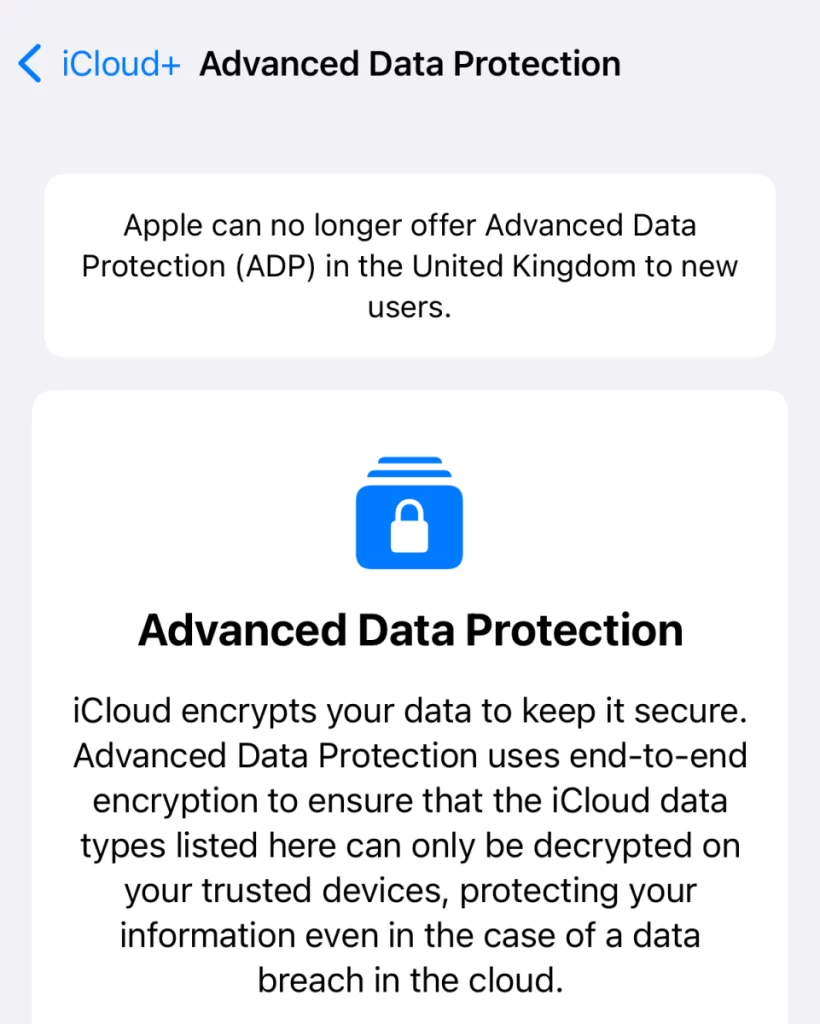
Apple Disables End-to-End Encryption for UK iCloud Users Following Government Directive
- The iCloud Advanced Data Protection feature was disabled in the U.K. to comply with government requests.
- ADP provides end-to-end encryption for iCloud backups that cover sensitive user data.
- Existing users of the feature will soon be instructed on how to disable it as part of ongoing iCloud usage.
Apple has announced the removal of its Advanced Data Protection (ADP) feature for iCloud in the United Kingdom after a controversial request from the U.K. government to create a backdoor for access to user data.
The move, confirmed on Friday, has drawn criticism from privacy advocates and digital rights organizations, who warn it sets a worrying precedent for data security.
Apple stated that "current and new U.K. users will no longer be able to access the ADP feature,” which provides end-to-end encryption for iCloud backups, including sensitive data like photos, notes, and device settings.
For existing users of the feature, Apple has promised guidance on how to disable it as part of ongoing iCloud usage.
The UK government’s demand reportedly aims to grant authorities "blanket access” to encrypted user data.
James Baker of the U.K. digital rights organization Open Rights Group expressed deep concern regarding the decision, stating, “The Home Office’s actions have deprived millions of Britons from accessing a security feature. This ultimately increases the risk of personal data falling into the hands of criminals and cyber predators."
Privacy experts urge global Apple users to enable ADP where possible, arguing that widespread adoption makes such security features harder to dismantle.
Despite the policy change in the U.K., Apple clarified that certain types of data, such as health records, messages stored in iCloud, and payment information, will remain encrypted by default and unaffected by this directive.
Similarly, Apple emphasized that end-to-end encrypted communication systems like iMessage and FaceTime will not be impacted.
Privacy advocates warn that the U.K. government’s success with Apple could open the door to similar demands in other parts of the world.











